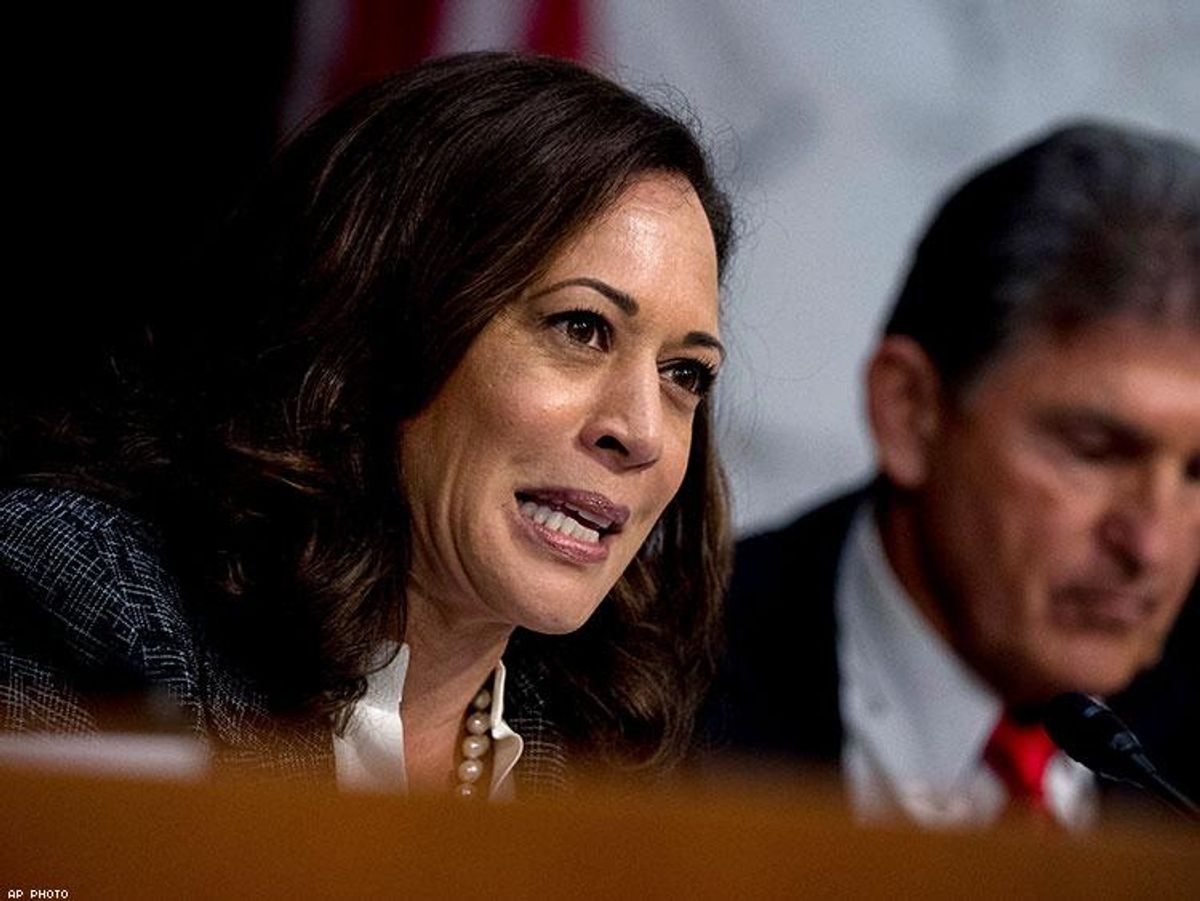California's junior senator Kamala Harris is emerging as one of the Democratic party's brightest stars. The former California attorney general -- who fought hard for marriage equality in the Golden State -- displayed her legal acumen against Rod Rosenstein, the deputy attorney general, and James Comey, the FBI director fired by President Trump over his refusal to drop an FBI investigation into the president's former intelligence staffer, Michael Flynn.
During the Senate Intelligence Committee's public hearing on Wednesday, Harris -- a member of the powerful committee -- asked Rosenstein for written authorization that he would not impede the special counsel investigation into Russian meddling into the 2016 election and possible collusion between Russians and the Trump campaign. Harris also wanted confirmation that Special Counsel Robert Mueller could not be fired by Trump. Rosenstein danced around the subject, professing that his reputation was all the assurance the senator needed.
Harris was not satisfied. She wanted a "yes" or "no" when it came to a written statement of independence. Harris's persistence was greeted with reprimands by Senator Richard Burr, a North Carolina Republican who heads the intelligence committee.
"The chair is going to exercise the right to allow the witnesses to answer the question, and the committee is on notice to provide the witnesses the courtesy -- which has not been extended all the way across -- extend the courtesy for questions to get answered."
Many saw parallels between the attempted silencing of Harris by male politicians with a similar scenario that played out in February between Senator Mitch McConnell and Senator Elizabeth Warren; the latter was protesting against the confirmation of Jeff Sessions as attorney general by reading a letter from Coretta Scott King. McConnell invoked a rarely-used rule to silence Warren.
"Sen. Warren was giving a lengthy speech," he said. "She had appeared to violate the rule. She was warned. She was given an explanation. Nevertheless, she persisted."
Warren would defend Harris's actions on Wednesday:
Harris was no slouch during Thursday's Comey hearing. She asked the former FBI director if other meetings occurred between the Trump team and Russians that the public was not aware of. Comey wouldn't answer in a public setting.
Harris also pushed on the issue of Sessions, who, as AG, recused himself from the Russia investigation because of undisclosed meetings he had with the Russian ambassador. She asked whether Sessions thumbed through FBI documents on the investigation before stepping away from the case. Comey said he, "didn't know."
The senator made a strong opening point with Comey by pushing back against Republican senators who tried to downplay Trump's pressure on Comey to drop the Flynn investigation. Trump said he "hoped" Comey could let the Flynn investigation go; some GOP senators said "hope" is different than "demand."
"In my experience of prosecuting cases," Harris said, "when a robber held a gun to somebody's head and said 'I hope you will give me your wallet,' the word hope was not the most operative word."



















































































